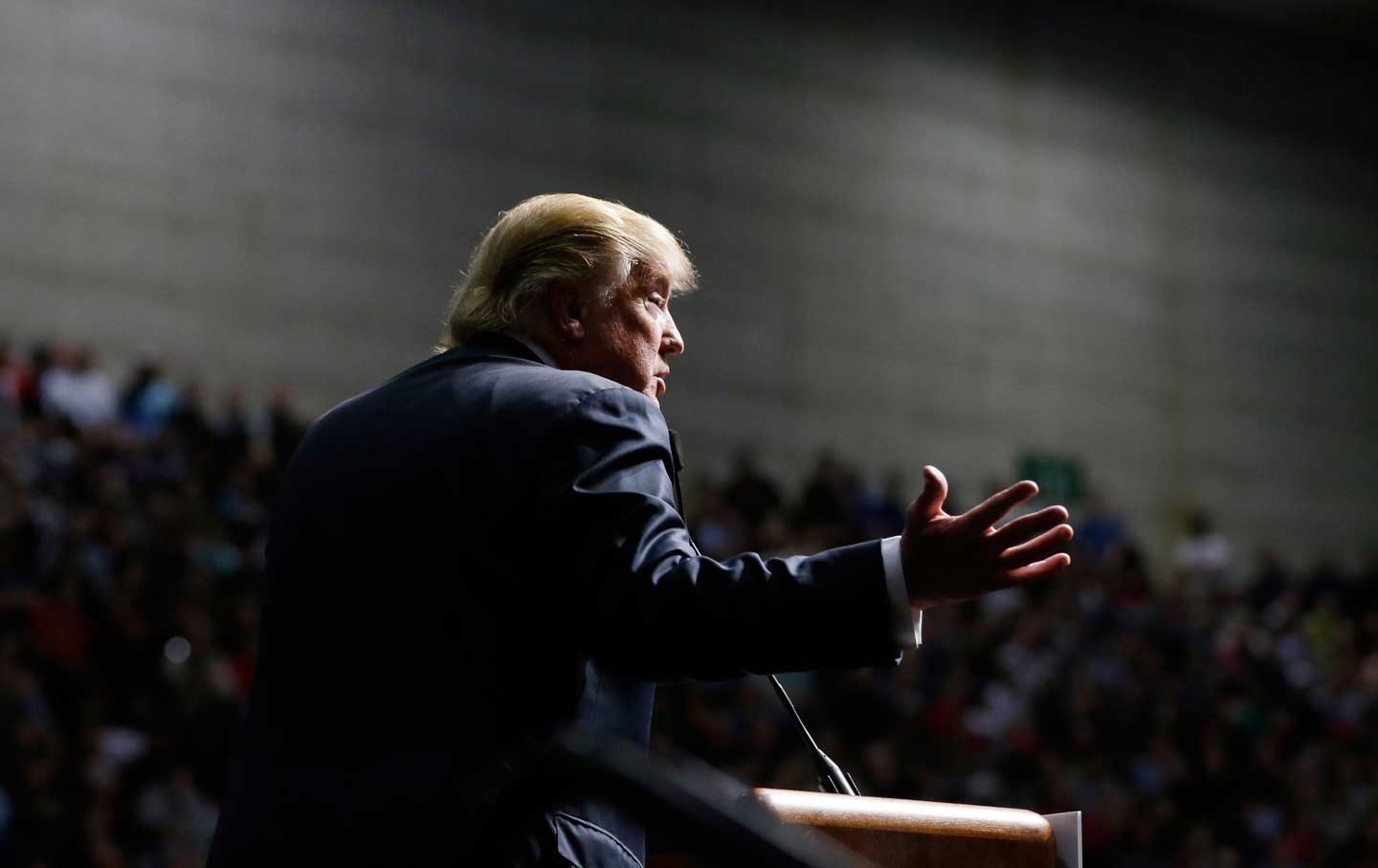
I’ve been living in Britain for the last year and have returned to the United States to cover the election from a small town in Indiana—with the experience of Brexit on my mind.
On June 24, a significant proportion of the British electorate woke up and thought they were living in a different country. Britain narrowly voted to leave the European Union. It felt like the politics of fear, isolation, and xenophobia had delivered an utterly devastating and enduring blow to the body politic. There are many lessons from that night, and indeed we in Britain are only just beginning to learn them. But as it relates to the American elections, I want to dwell on just three.
First, don’t let the polls guide your strategic decisions about voting. If you want Hillary Clinton to win, vote for her. If you favor Jill Stein, vote for her. Don’t cast your vote thinking you’re compensating for a result that has not been declared but that you think you’ve factored in. You don’t know.
The Brexit result caught the currency traders, pollsters, betting agencies, and commentators off guard. One of the leading voices of the Leave campaign, Nigel Farage of the UK Independence Party, conceded defeat at 10 pm the night of the election; less than six hours later he claimed victory.
As I write, polls suggest a runaway victory for Clinton. They could be right. But politics is in a very volatile state—they could also be wrong. And the only way you’ll know for sure will be when it’s too late to do anything about it.
Second, the fact that the messenger is deranged doesn’t mean the message itself contains no significant truths. Before the Brexit referendum, liberals broadly dismissed Leave voters as ignorant, angry, and bigoted. Some of them were undoubtedly all three. But that’s not primarily what was driving many of them. It took the Brexit result for the nation to pay attention to communities devastated by neoliberal globalization. Had Remain won, those who were forgotten would have remained forgotten.
True, politicians have drawn mostly the wrong conclusions: condemning the free movement of people rather than the free movement of capital. Nonetheless, regions long ignored, accents rarely heard, and issues seldom raised are traveling from the margins to the mainstream of British politics.
Similarly, if Hillary Clinton wins, that should not blind us to some of the themes that have made Trump’s candidacy viable. In Muncie, Indiana, where I have spent most of this election season, huge manufacturing plants have closed since the passage of NAFTA, leaving one-third of the town in poverty. And while Trump’s base is not particularly poor, a significant portion of the nation is desperate. It’s not difficult to see why. The price of everything apart from labor has shot up in the past 40 years, while inequality has grown and social mobility has slumped. Trump’s original Brexit strategy of targeting Rust Belt towns in Pennsylvania, Michigan, and Wisconsin may not have worked electorally, but what he identified remains a politically salient fault line that doesn’t just go away if Clinton wins. If these problems are not tended to, a less erratic and more focused right-wing populist than Trump could easily exploit them.






